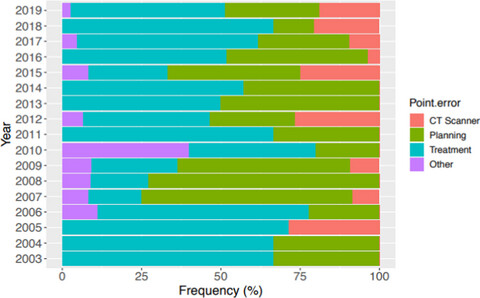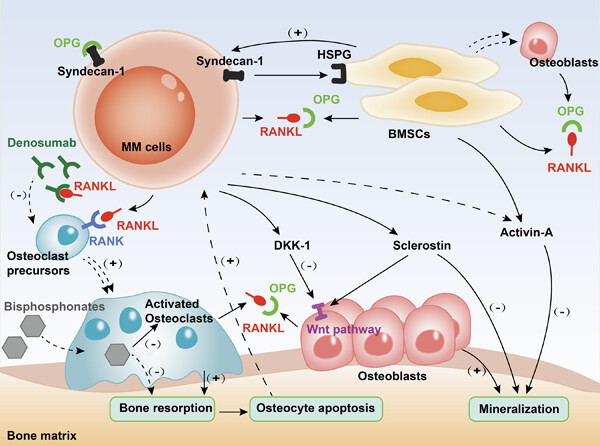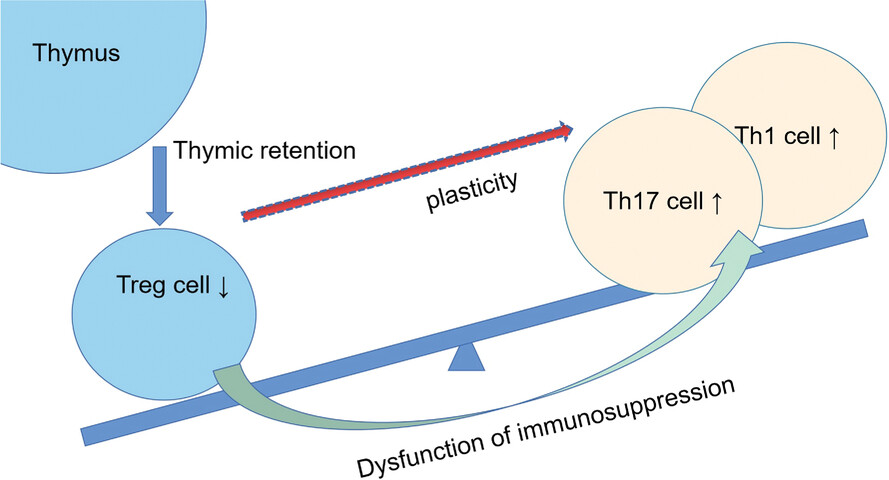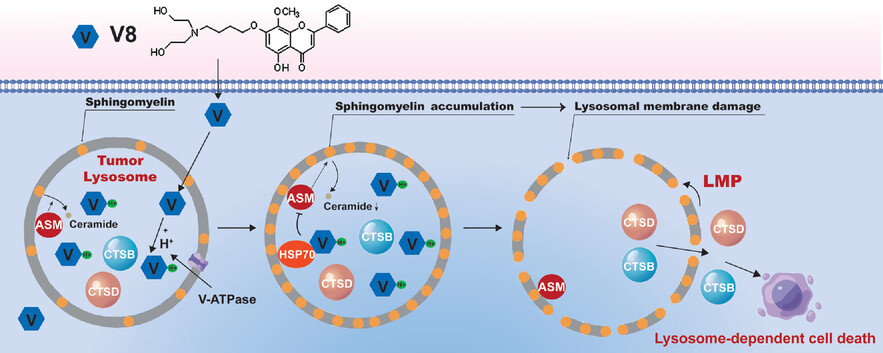Journal list menu
Export Citations
Download PDFs
Health Services Research and Quality Improvement
Effect of cryotherapy on paclitaxel-induced peripheral neuropathy of the hand in female breast cancer patients: A prospective self-controlled study
- First Published: 15 August 2022
Prevention of breast cancer-related lymphoedema: Quality of clinical practice guidelines and variations in recommendations
- First Published: 21 December 2022
Evaluating incident learning systems and safety culture in two radiation oncology departments
- First Published: 09 December 2021
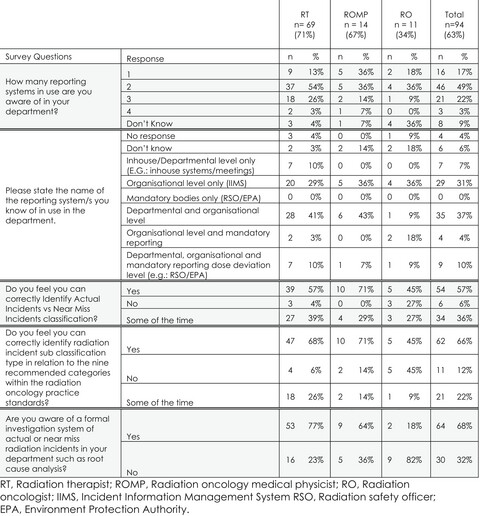
The aims were to assess attitudes to and understanding of safety culture (SC) and incident learning systems (ILSs) in two closely-linked radiation oncology departments using a customised survey. Sixty-three per cent of staff participated. Barriers identified in one department prompted a quality improvement project to develop a new radiation oncology-specific reporting system, with a focus on improving departmental learning and modifying the overall ILS.
Impact of technological and departmental changes on incident rates in radiation oncology over a seventeen-year period
- First Published: 29 May 2021
Sentinel lymph node biopsy rates in Victoria, 2018 and 2019
- First Published: 14 February 2022
Late mortality in people with cancer: a population-based Australian study
- First Published: 09 December 2020
The improvement in continuity and integrity of survivorship care for breast cancer survivors in Chinese healthcare system
- First Published: 23 March 2021
Evaluation of quality of clinical management of neuroendocrine tumors
- First Published: 16 December 2022
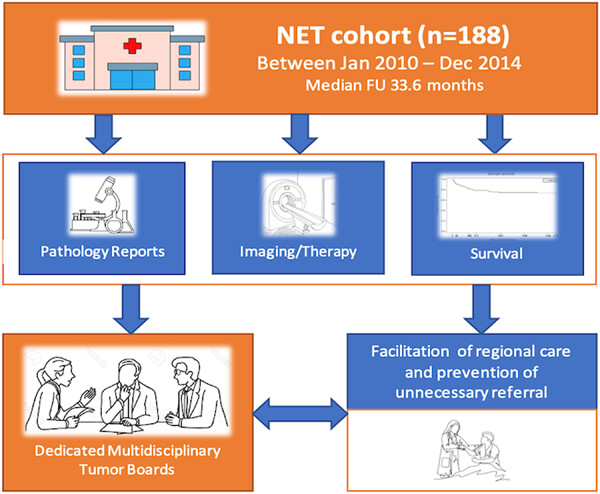
Overall, the epidemiological results of our neuroendocrine tumor (NET) cohort were comparable with findings in literature. Gastrointestinal NETs met most of the requirements of qualitative pathology reporting and diagnostic imaging as listed in the European Neuroendocrine Tumor Society consensus guidelines. Discussing treatment strategies in specialized multidisciplinary tumor boards would facilitate regional care.
Flexible bioelectronic innovation for personalized health management
- First Published: 12 March 2023

With the vigorous development of intelligent medical care and interdisciplinary science, innovative flexible bioelectronics (FBEs) are emerging in health monitoring, disease diagnosis and treatment, and even cancer therapy. This work comments on the recent progress of FBEs in personalized health management, emphasizing its innovative role in cancer therapy. Future perspectives on the challenges and opportunities for the next-generation innovative FBEs are also proposed.
Hematologic Malignancies
Harnessing natural killer cells to develop next-generation cellular immunotherapy
- First Published: 02 August 2022
Pathophysiology and therapeutic advances in myeloma bone disease
- First Published: 04 July 2022
The promising combination therapy strategy for overcoming resistance to histone deacetylase inhibitors in diffuse large B-cell lymphoma
- First Published: 21 April 2022
Targeting lysosomal HSP70 induces acid sphingomyelinase-mediated disturbance of lipid metabolism and leads to cell death in T cell malignancies
- First Published: 23 March 2023
Splicing factor arginine/serine-rich 8 promotes multiple myeloma malignancy and bone lesion through alternative splicing of CACYBP and exosome-based cellular communication
- First Published: 20 February 2022
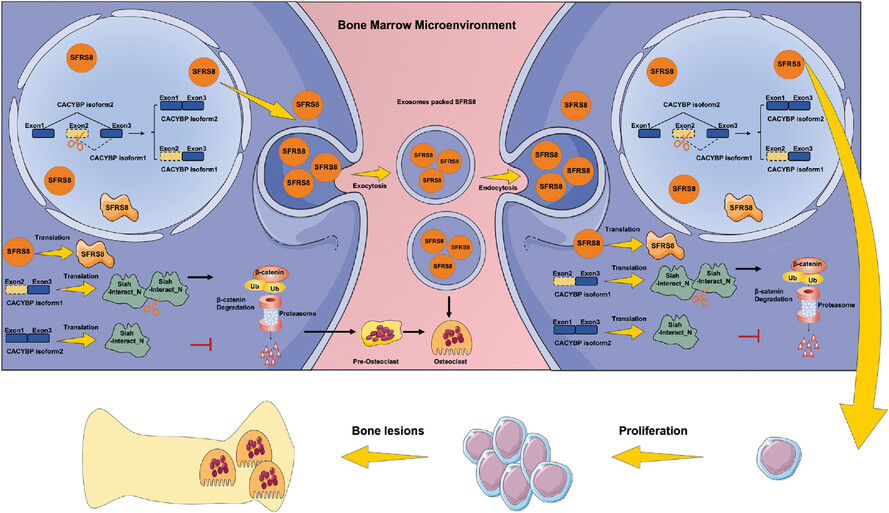
Graphic working model illustrates that SFRS8 reduces CACYBP isoform1 (NM_014412.3) and increases CACYBP isoform2 (NM_001007214.1) by mediating the alternative splicing of CACYBP, thereby altering the ubiquitination degradation of β-catenin and exosome-based cellular communication to promote MM malignancy and bone lesion.
Pathogenesis and treatment of multiple myeloma
- First Published: 02 June 2022
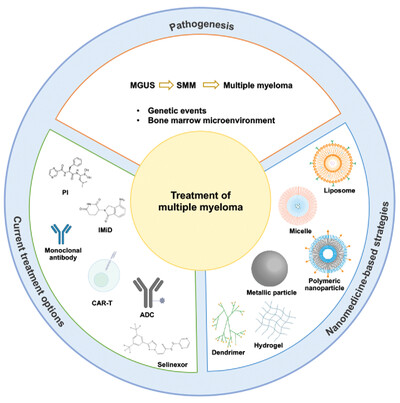
Multiple myeloma (MM) is the second-ranking malignancy in hematological tumors. There has been a significant change in the paradigm for the management of MM. In this review, we summarize the pathogenesis and current treatment options of MM, then overview recent advances in nanomedicine-based systems, aiming to provide more insights into the treatment of MM.
DNA crosslinking and recombination-activating genes 1/2 (RAG1/2) are required for oncogenic splicing in acute lymphoblastic leukemia
- First Published: 26 October 2021
Structural and functional characterization of multiple myeloma associated cytoplasmic poly(A) polymerase FAM46C
- First Published: 28 May 2021
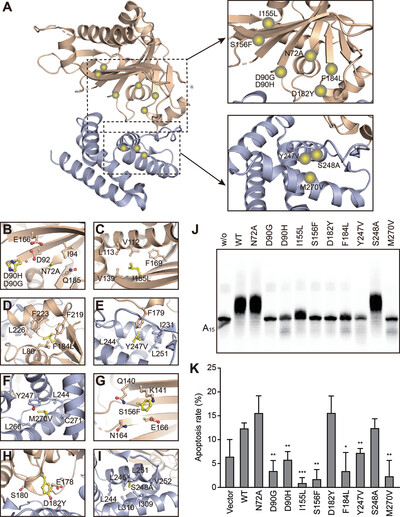
- Mammalian FAM46C is a unique non-canonical poly(A) polymerase (PAP) with a bacterial-like protein fold.
- FAM46C differs from its homolog FAM46B in PAP activity due to the divergence of amino acid residues at several critical sites.
- The structural-functional characterization of MM-related FAM46C mutations that may be used for prognosis in the future.
Identification and integrative analysis of microRNAs in myelodysplastic syndromes based on microRNAs expression profile
- First Published: 01 February 2022

miR-195-5p, miR-4505, miR-22-3p and miR-148a-3p were selected as hub microRNAs in microRNA-Gene ontology regulatory network and their aberrant expression might be closely associated with myelodysplastic syndromes pathogenesis. Their target genes mainly participated in the process of signal transduction, blood coagulation, apoptotic process, cell proliferation, transmembrane transport and angiogenesis




